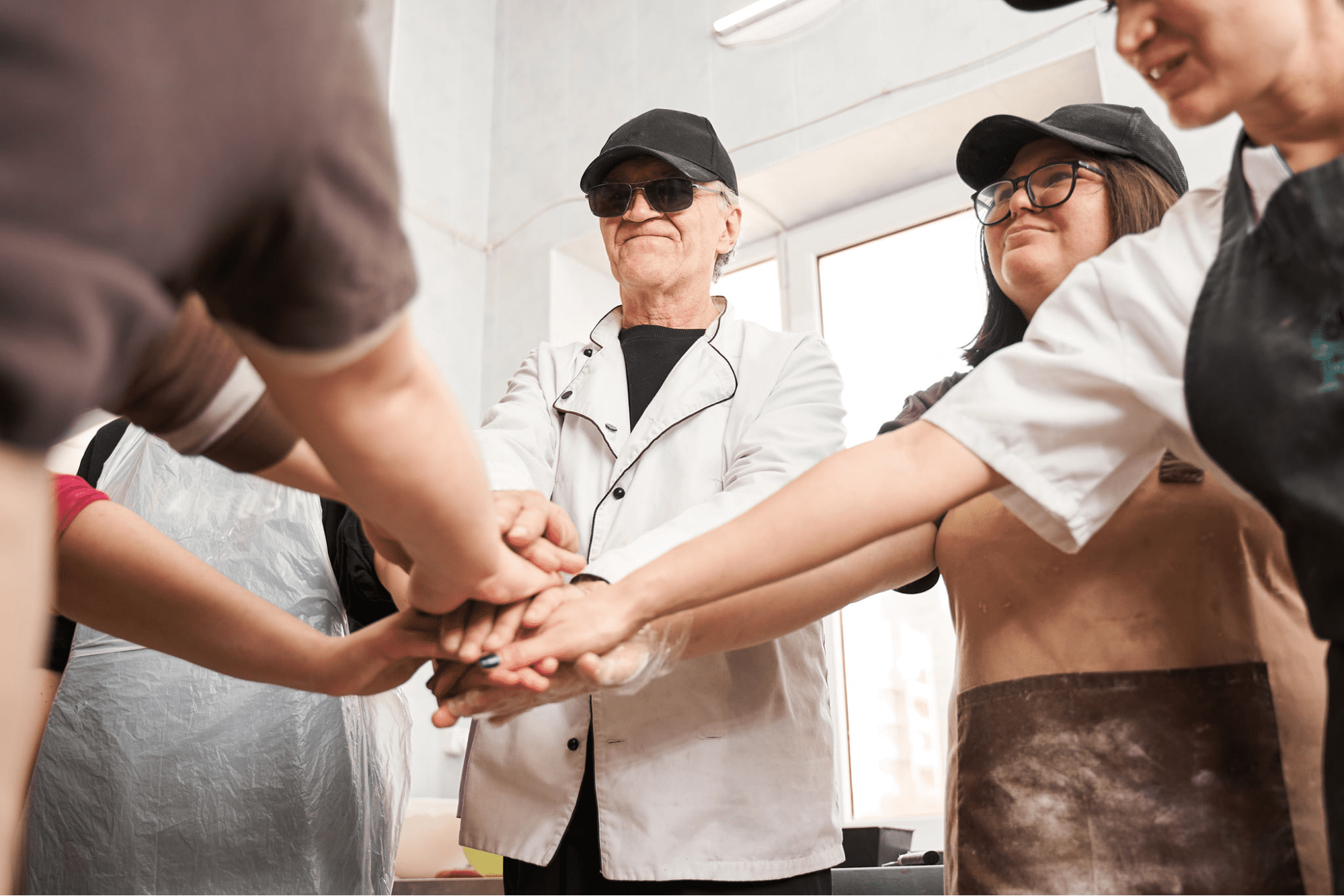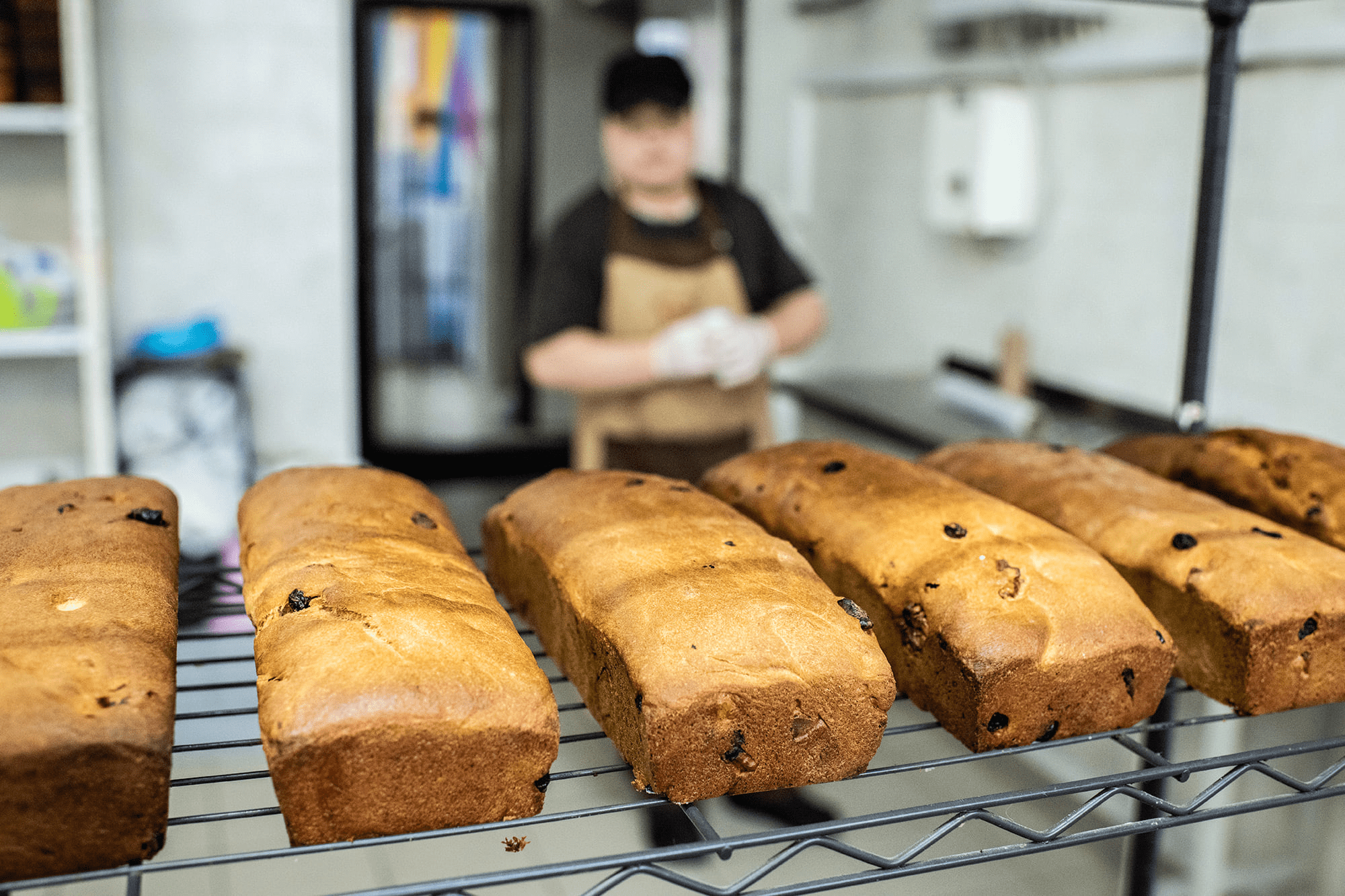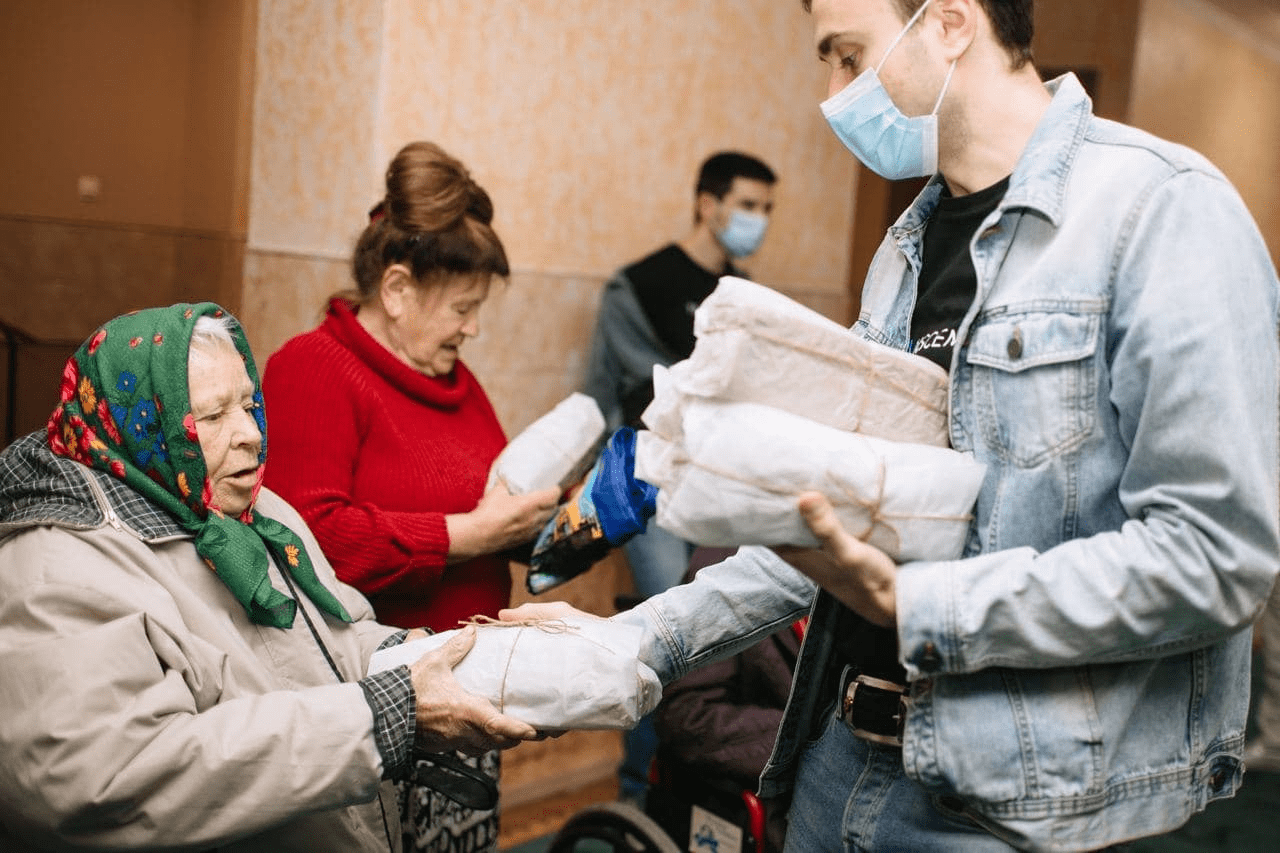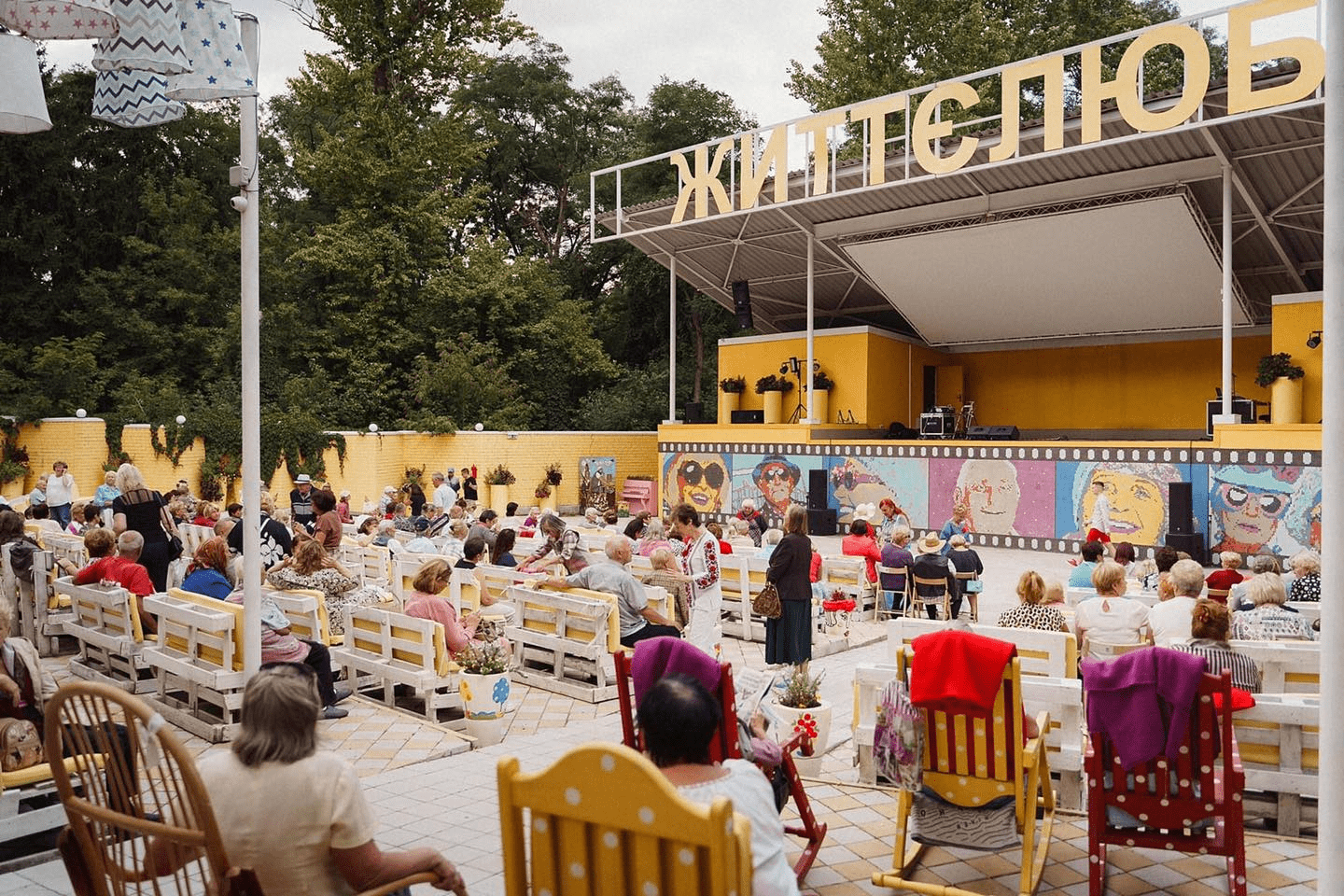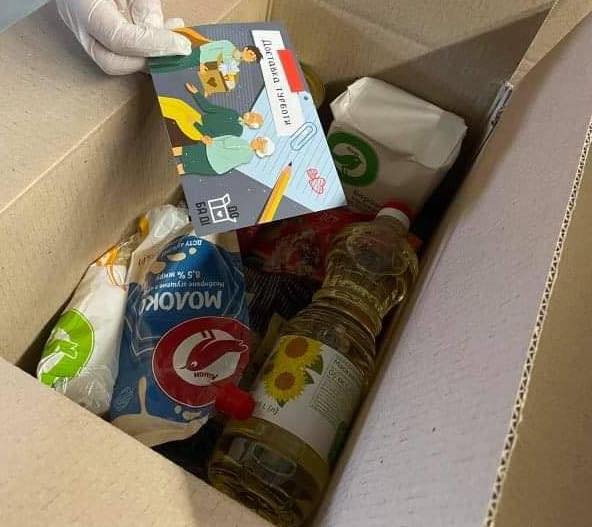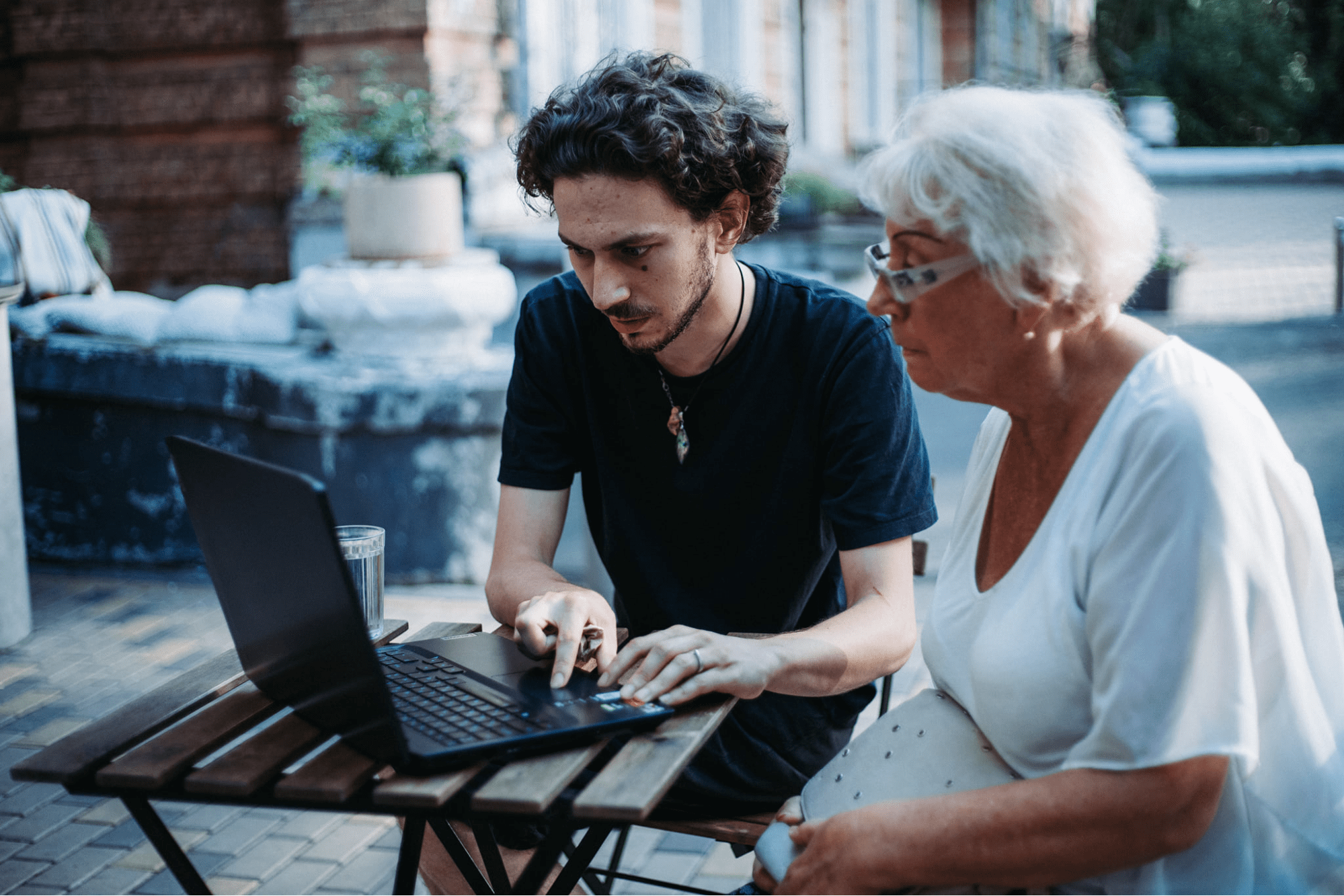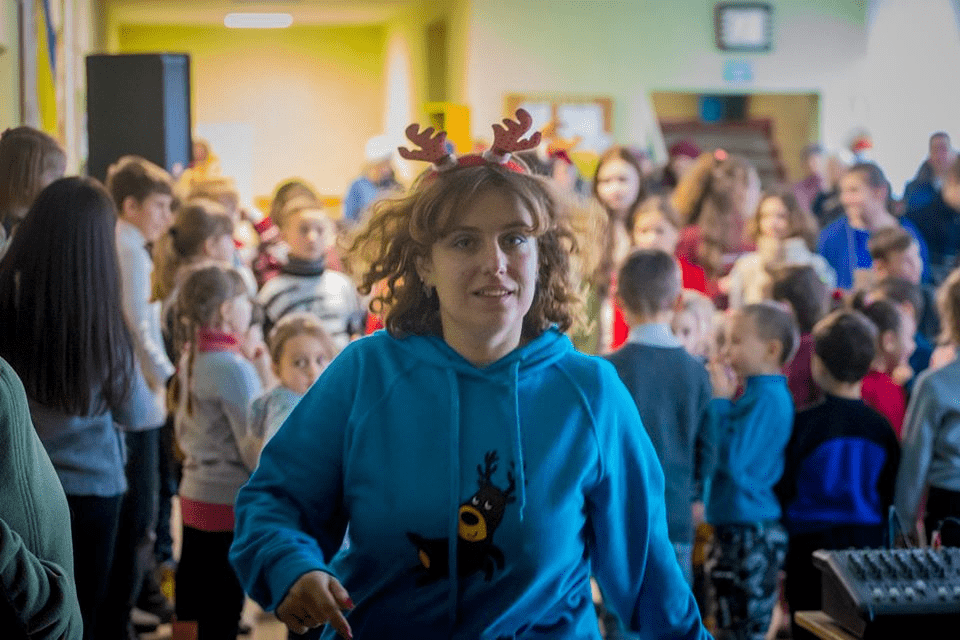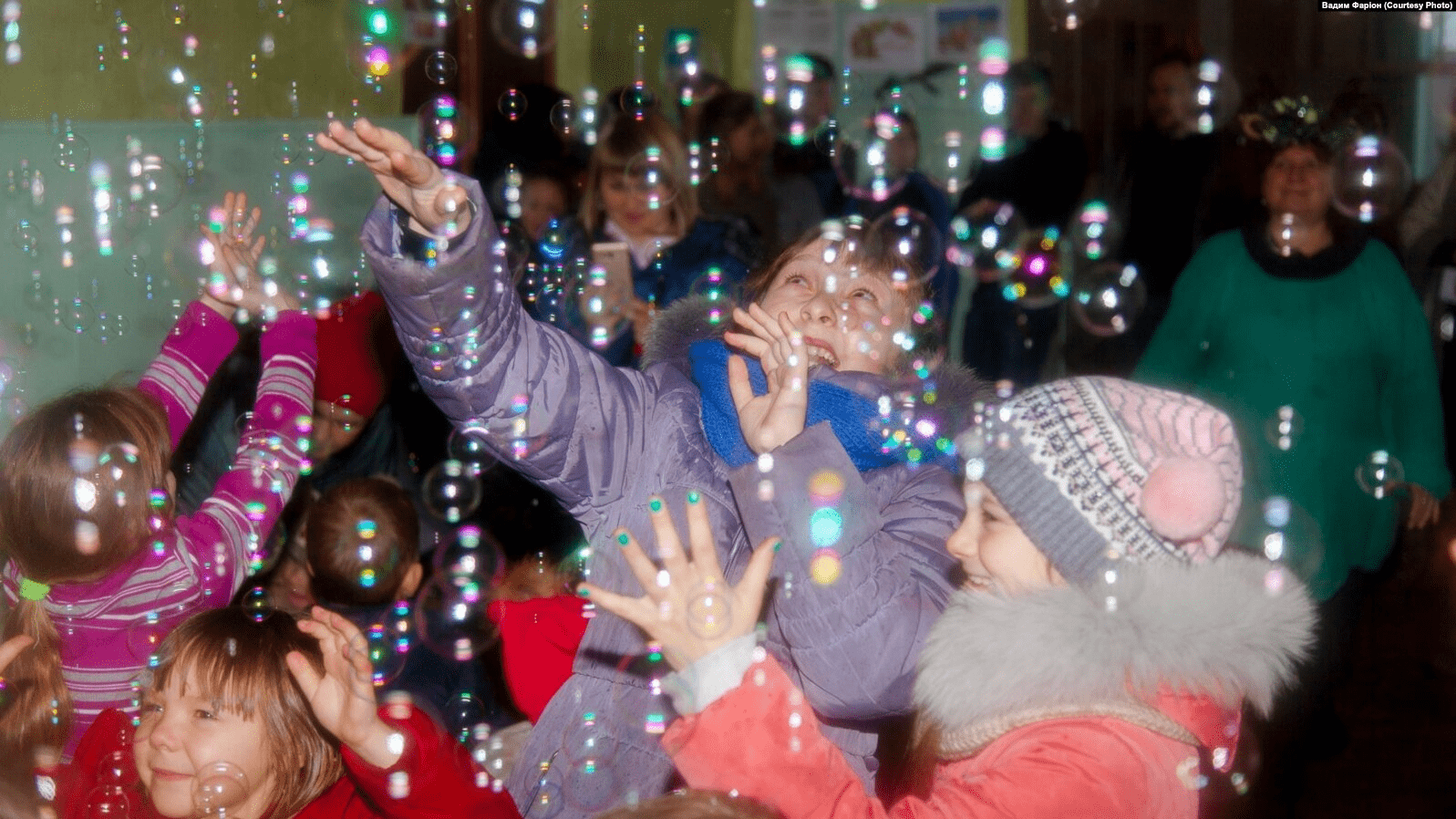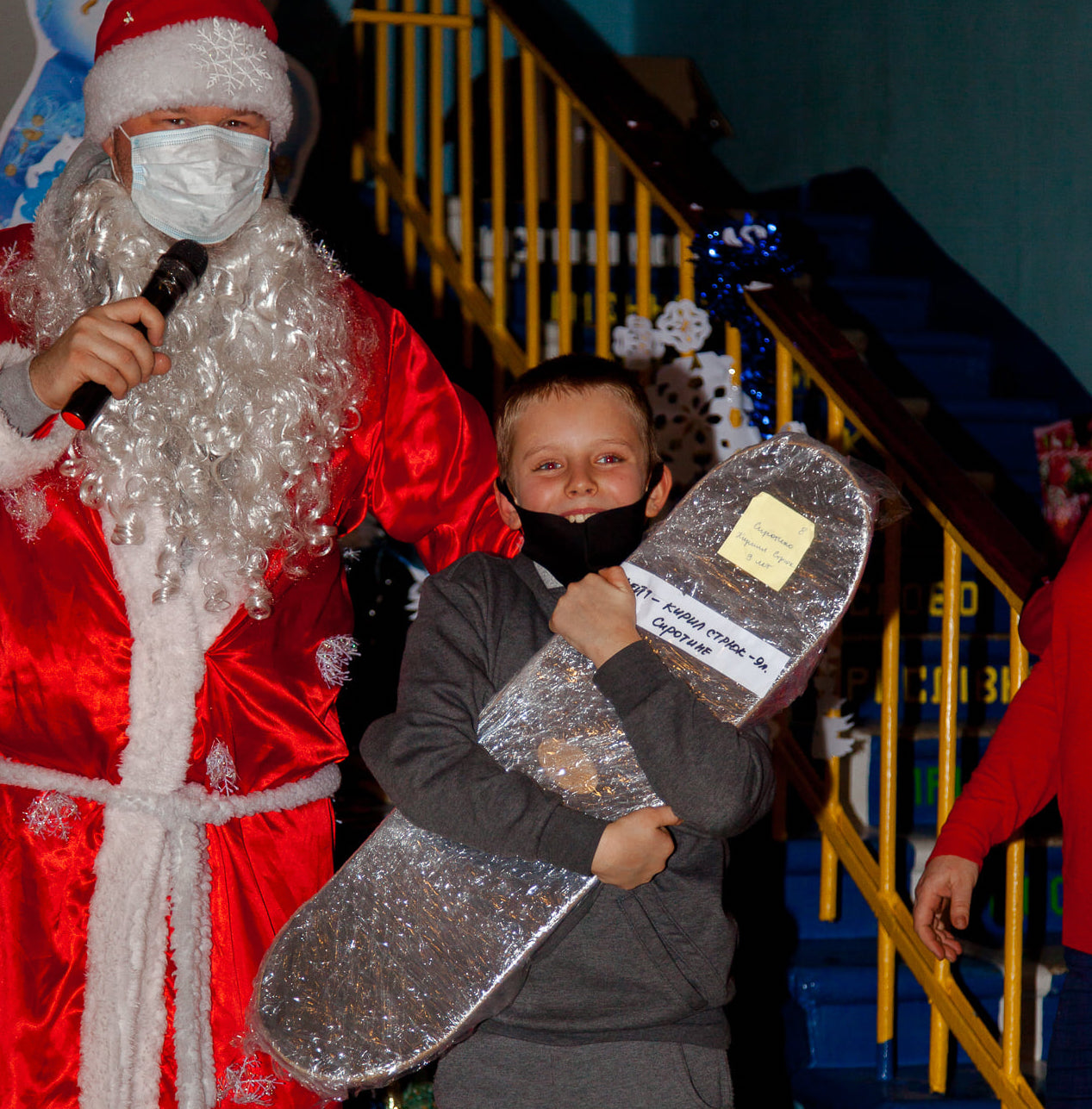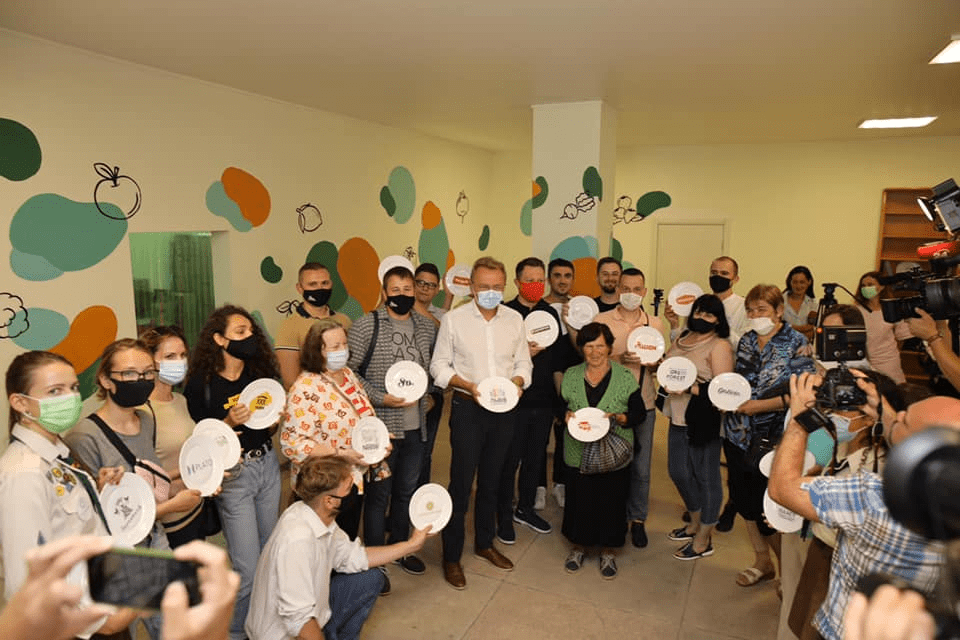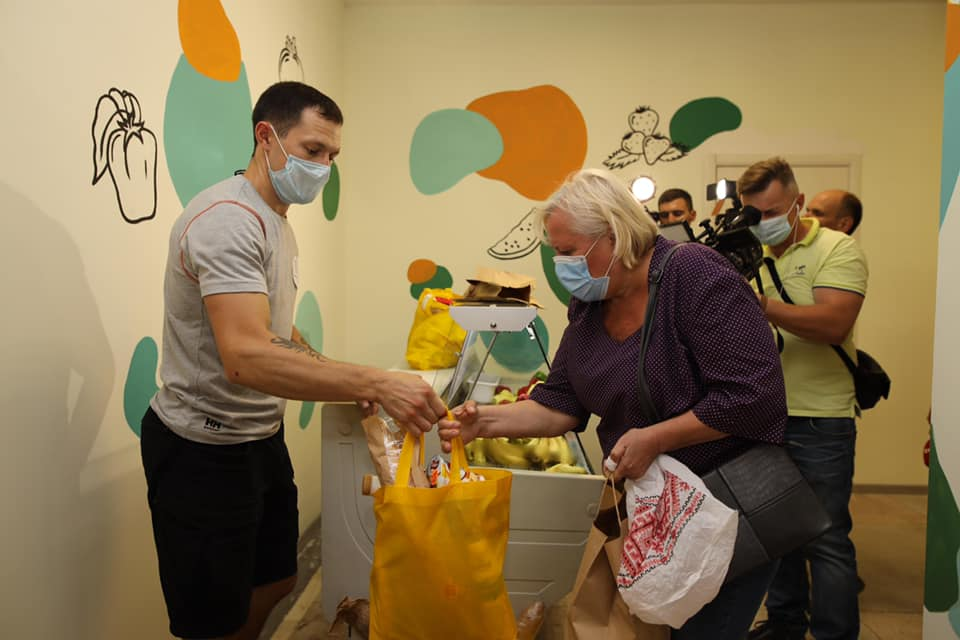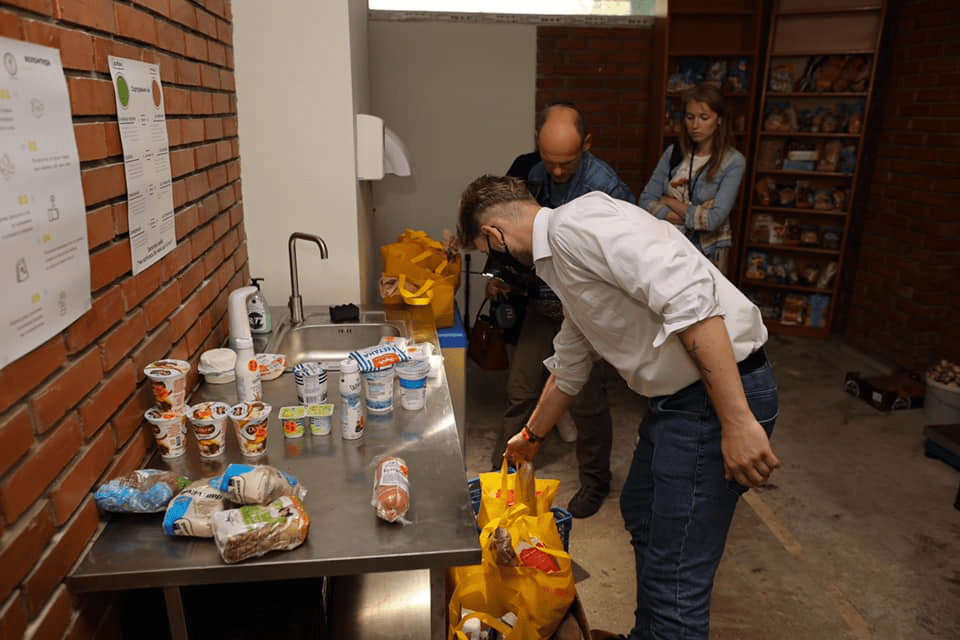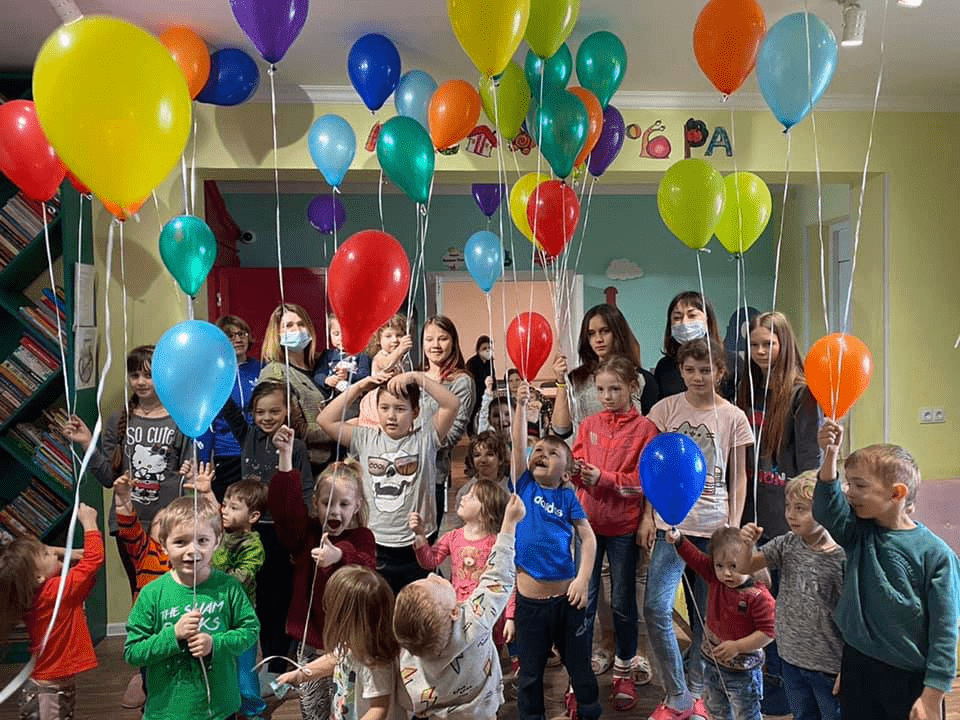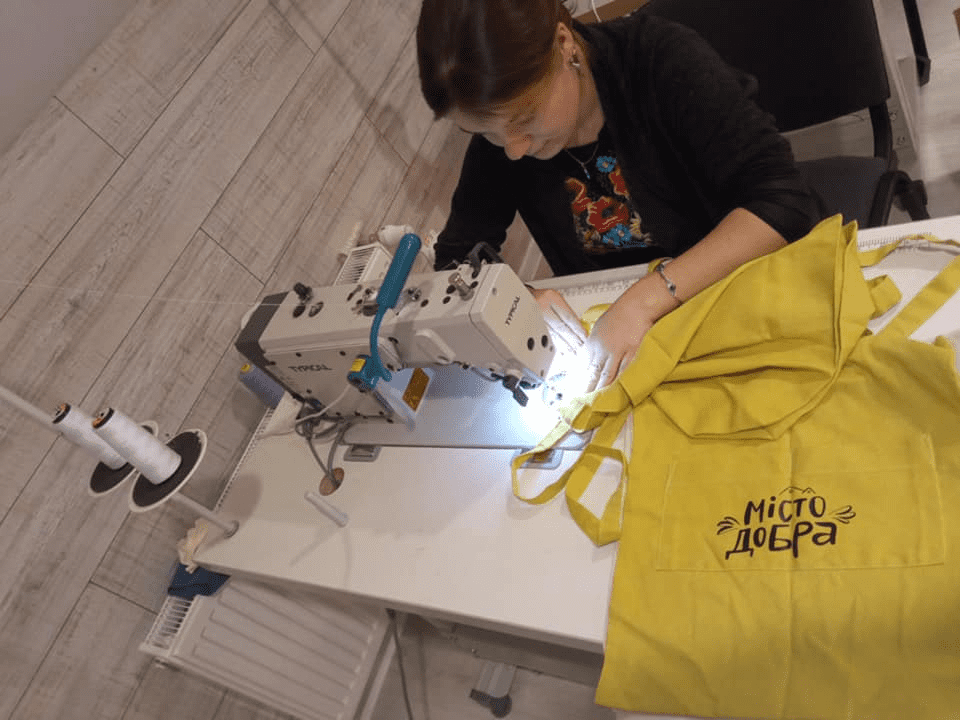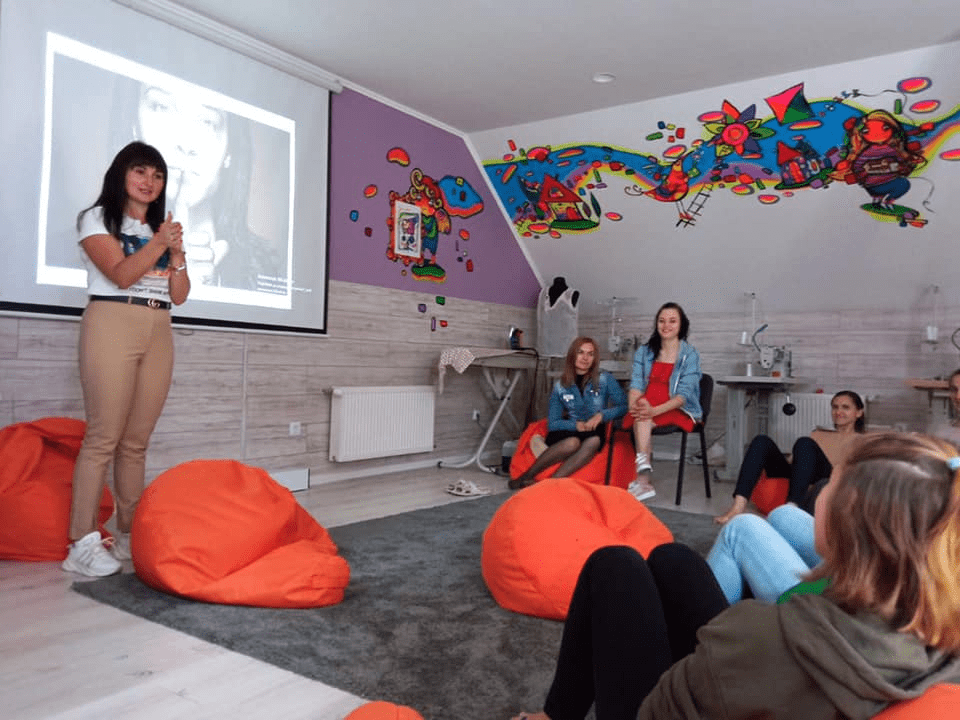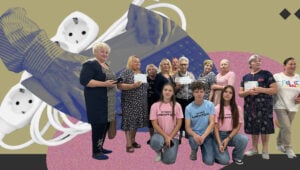Top 5 social Change Drivers: who will you vote for?
The five most interesting projects in the "Social Initiatives" category, selected by Rubryka and partners, are competing for first place in the competition for the title of the best!

We continue to tell you about the finalists of the "Change Drivers" competition, a project launched in June this year by the Bendukidze Free Market Center in collaboration with the Friedrich Naumann Foundation Ukraine and Belarus, Atlas Network, and Rubryka Solutions Media.
Choosing the top 5 in the category of "Social Initiatives" was not easy; we wanted to celebrate absolutely everyone! After all, each of the projects nominated for the competition provides real support to many people across Ukraine, helping them to live a full life.
Now our readers face an arduous task: to choose from the top 5 social initiatives the one that will be the first to be included in the all-Ukrainian "Change Drivers" directory.
Meet, be proud, and support!
"Good Bread from Good People": everyone is a part of society
It is widely believed that if a person has Down syndrome or autism, they can't work. But it's not the case. This is proved by the Kyiv social bakery "Good Bread From Good People," which has been providing work to people with mental disorders for 4 years.
The main goal of Good Bread From Good People is to bring people with mental disabilities back into society; not leave them alone at home and in specialized institutions. But give parents hope that their children can work and earn a living, and show that each of them can find their place in this life.
The inclusive bakery began its story when its founder Vladyslav Malashchenko, an educator, realized that young people with autism, Down syndrome, or mental development disorder don't know what to do next or what to do when they are born after specialized schools and orphanages. Nobody needs them, they're not hired. And if, for example, NASA is recruiting people with autism spectrum disorders for STEM specialties, then it's almost impossible to meet them in everyday life, because for the most part such people just sit within four walls all their lives.
"The state is moving very slowly towards change and, unfortunately, still sees the only way out to put a person with a mental disability in a boarding house for life. 'Good Bread' shows that there are other options. It shows that such people can be employed, and inclusion in working gives a positive trend. They socialize, reveal themselves as individuals, and shift the focus from diagnosis to what they can do. Everyone is a part of society. And we're convinced that it is necessary to create conditions for everyone, but not to exclude them from society due to certain mental peculiarities," says the founder of the project.
Since 2017, the bakery has given a chance to 30 people with mental disabilities to realize themselves; for some, it was the only one. The current Good Bread From Good People team consists of 20 people with mental disabilities who work under the supervision of a professional baker and bake sweets for everyone willing and as vulnerable as they are. For each of them, the bakery has become not just a place to work, but also the meaning of life. "Good Bread" believes: "Every person who has felt self-confidence and self-importance is our victory."
"Good Bread" baked goods can be bought, ordered on the website, or "hung up" and handed over to the residents of the Stage Veterans' House, psychoneurological boarding houses, hospices, patients of the Cancer Institute and hospitals, and free lunch distribution points. This year alone, Good Bread handed over 2,500 pending cupcakes.
The Good Bread From Good People project is not just a good thing, first, it's an important step for inclusiveness development in Ukraine.
"An adult with a mental disability is powerless," says Vladyslav Malashchenko. "In our country, all the worlds are open to people with the norm, but if you're not like everyone else, you have only two ways: a child center and a boarding house, and you can beat your head against a wall for a long time and in vain, trying to pave another path. It's precious that we shake this dogma, creating a place where you can get a chance to implement it. We point to a wide range of people with mental disabilities who are involved in public life. We open them to those who could never think about the problem of psychoneurological boarding houses and socialization. This raises the issue to a higher level. Four years ago, we were constantly asked, 'What is a mental disability?' Today, almost everyone understands this. So we're on the right track.
Positive changes have already taken place for those people who work in our bakery. And we strive to expand the project to make more changes. Because change starts small. We believe we can inspire others to create similar social enterprises. And we believe that we can set an example to the state, show how people with disabilities can be given the opportunity to participate in public life."
"Enjoying Life": old age is not a sentence
Founded in 2013, the "Enjoying Life" or "Happy Old" project is the first charitable fund for the support and comprehensive development for the elderly in Ukraine. The foundation covers basic food needs and targeted assistance to people of respectable age, helps to find work and vocations, provides an opportunity to expand the circle of communication among peers and young people.
With the help of "Enjoying Life," you can get a free hot lunch and medicine, learn English or learn to dance the tango, make new friends, travel, get the help you need and be useful yourself. The idea promoted by the founders of the project is to live here and now, smile every day, not be afraid of age and be an active part of the modern world. Over the years, "Happy Old" has become a social trend, an active volunteer community, a generator, and an implementer of many social initiatives aimed at making the lives of the elderly safe, full and joyful.
The folding table, a can of borscht and pies, with which the foundation founders together with a team of caring guys took to the streets of Kyiv in March 2017 to treat Kyiv pensioners, became the beginning of "Lunch without Troubles," one of the main projects of Enjoying Life Charitable Foundation. Three years later, the flagship table was transformed into 13 full-fledged hot lunch distribution points that operated daily. With the onset of the pandemic, the project was reformatted into a monthly targeted delivery program for care kits. Thus, the foundation was able to continue to help the wards of the Lunch without Troubles project. Currently, 1,500 Kyiv life enjoyers receive food in a safe format every month.
Volunteers of the project, SuperGrandchildren, thousands of young people who share the values of "Enjoying Life" help to deliver food kits for residents of small towns and villages of Ukraine, within the "DoBaDi" program. Also, elderly Ukrainians, who are affectionately called Ba and Di (short for grandmother and grandfather in Ukrainian – TN) in "Enjoying Life," receive the necessary medical, household, and social support within the "Address Assistance" project.
But by the food alone. The project of the same name, the first agency of mature models in Ukraine "Enjoying Life," is the pride of the fund. The idea is that everyone can be beautiful, stylish, and modern, regardless of age. Ba and Di are filmed in music videos, commercials, fashion shows at fashion weeks. Their photos inspire both the younger generation and the life enjoyers themselves. The "Regime" project is called "Remedy for Loneliness" in the fund. Every day, this initiative hosts educational, sports, and entertainment events for the elderly. During quarantine, it happened online. They also opened the "Trudoliub" program for the employment of 50+ people, and its participants can not only find a job but also learn a new profession.
"The most common question I'm asked is, 'Why do you need this?'" Tina Mykhailovska, the co-founder of the Enjoying Life Foundation, wrote on her Facebook page. "This question is usually asked without cameras, recorders, after the official meetings. It seems that, besides the lofty and bright goals of our project, there's another goal. Some invisible secret that will add logic and common sense to the sublime ideas of charity. The answer, of course, is that everything we do in Enjoying Life we do for ourselves. To wake up and learn one day that age (and we cannot avoid it) is no longer a sentence. With the world around, there are still a million possibilities, that human potential isn't limited by the line in the passport and we can live fully, not be on our last legs. Living the way we want. Being visible by a society that takes into account the interests and needs of all people, and doesn't delete one group from all lists."
"St. Nicholas Reindeer": small miracles that change the world
St. Nicholas has many helpers, and some of them are participants in the project launched by the All-Ukrainian Association "Ukrainian Borders," St. Nicholas Reindeer. For the sixth year in a row, Kharkiv volunteers give joy and celebrate children from frontline villages and towns in the East of Ukraine.
Ukraine has been at war for 7 years. During this time, a whole generation of children grew up who saw nothing but war. Providing psychological support to children suffering from the ongoing armed conflict, showing not in words but deeds that many people are not indifferent to their problems, allowing children and their parents to feel not left out in the cold and cared for by the community, drawing attention to children's problems living in a zone of military conflict and involving as many people and organizations as possible in the work to overcome them is the mission of the "St. Nicholas Reindeer" initiative.
"We try to do everything in our power to ensure that these children don't feel cut off from Ukraine and the world," said the project participants.
Today, about 14,000 children live on the demarcation line in Donetsk and Luhansk regions. Every year, since 2016, the project wizards collect thousands of letters from them with dreams and wishes. They are summarized in the spreadsheet, which lists the names of children, age, what they are looking for as a gift, as well as scans of letters to St. Nicholas.
At first, they thought that there would not be many letters, but in the first year, there were more than a thousand. The number of children's letters is growing every year; only in the 2020 quarantine year, volunteers collected and presented 1325 targeted and 505 non- targeted gifts to children living near the war.
"Children believed in miracles from the very beginning, but adults didn't quite understand what was happening, where the gifts for their children came from," said project volunteers Inna Achkasova and Maryna Lidis. "But for 5 years of our work, both children and adults began to ask us for contacts of donors. The feedback grows every year. We're proud that thanks to the project, some children and adults who live very far away, in different parts of the world, have found each other, exchange letters and gifts, become friends."
Volunteers declare that their activities change the very meaning and content of social assistance. "We give the opportunity to feel personal contact to both those who help and those who accept help. 'Help' is not some faceless fund, but a living person. This is giving warmth from hand to hand. And we're a heat transfer line."
The activity of "St. Nicholas Reindeer" is not limited to New Year's holidays. Holly festivals are organized in summer; thanks to the project, the children who dreamed of it traveled around Ukraine. Some families from the line of demarcation wanted to become donors and made gifts for children from other settlements.
"It's an incredible feeling when you do real miracles with your own hands, and it's impossible to give it up," says Yevhenia Levinshtein, project coordinator. "When special felt-tip pens from the artist from Canada arrive for the boy artist from the village of Novoivanivka. When a young family comes and takes gifts for the entire kindergarten. When programmers choose guys with the same enthusiasm as they do, they raise money for the entire department and give them expensive snowboards. When a woman gives a guy a guitar and writes a letter where she recalls how she dreamed of a guitar in her childhood. Such stories happen every year, and it's very inspiring.
We see how these villages are changing in front of our eyes, the roads to them, how schools and clubs are flourishing. There is a part of our work in this because we make these villages and these people more visible, we support local volunteers and enthusiasts.
And yet: when trouble happens in any of these villages (for example, a fire in Muratovo, Luhansk region), then for the donors and philanthropists who participated in our project, it's no longer some abstract name, but the faces of familiar children and adults. And help is coming instantly.
That is, what we do is not just gifts and children's joy. These are the social ties that bind Ukraine together."
"Tarilka": feeding the needy and helping nature
It's no secret that tons of products that Ukrainians don't eat or sell in shops and restaurants, and leave over, are simply sent to landfills. Currently, Ukraine is one of the leaders in Europe in the number of landfills, which consist of half of the organic waste. According to the FAO (Food and Agriculture Organization of the United Nations), Ukrainians annually emit approximately 7 million tons of edible products. This is more than Germany and France combined. The cost of such products is about 5.5 billion hryvnias. At the same time, there are hundreds of thousands of people in the country who simply lack food. In April 2020, the international organization UNICEF published a report according to which the poverty rate in Ukraine will increase because of a pandemic from 27.2% to 43.6%, and in the worst case, up to 50.8% of the total population.
Aware of this situation, the team of the "Tarilka" public organization created the first Ukrainian food bank, which collects food in supermarket chains on the verge of the expiration date, and after proper sorting distributes this food among vulnerable groups. This reduces the level of organic waste and provides daily assistance to people who, due to unemployment or low wages or pensions, are unable to provide for themselves.
In fact, "Tarilka" is a store without a cash register. Those who need produce and those who want to share it will be able to come here for the products. To receive a food set in Tarilka, you need to first register. To register, you need a passport, a certificate of privileged category, and a phone number. One can pick up the products on a certain day and time, which the volunteer will inform about in advance by phone. The visitor receives a set of products that will arrive that day.
Every day, 25 visitors of the bank have the opportunity to receive a full free set of products. In this way, up to 3 tons of food is saved from getting into the landfill every month in Lviv alone. It's not difficult to imagine what these figures might be if each regional and district center had its own "Tarilka."
"We were able to develop a unique algorithm for cooperation between business and civil society, which allows you to simultaneously solve the 'pain' in the environmental and social spheres," says the head of the NGO Tarilka Ivan Pavlish. "Until the launch of Tarilka in Lviv, there was no food bank in Ukraine that would work according to a similar system. Now we share our own experience, help volunteers from other cities to open their 'Tarilka,' and hope that very soon the culture of food banks will be nationwide."
Two years passed from the idea of creating a food bank to its implementation in Lviv. Now the project participants not only feed the people of Lviv but also train volunteers from other cities. Today, with the support of the Lviv "Tarilka" team, Charitable Foundation "Tarilka Kyiv" began its activities in Kyiv. Before that, volunteers from Kyiv came to Lviv, helped to collect products from stores, were engaged in sorting and distribution. In October, volunteers from Kherson underwent a similar "training."
According to the project manager, people who are not indifferent are the main engine of both "Tarilka's" and any changes in society.
"Our volunteers are incredible young bright people who feel the importance of our initiative for the city and the country and are ready to selflessly invest their free time to make 'Tarilka' better every time," says Ivan Pavlish. "It is also worth noting that the support and attitude of the visitors to the project is very important. We've involved some of them in the organization of our foodbank, sometimes people bring apples or other vegetables/fruits that they want to share with other visitors.
Personally for me (and, probably, for each member of our team), the potential that 'Tarilka' carries is extremely valuable. The opportunity to help many people and join in preserving the environment is exactly what our country needs today."
"City of Goodness" is a place of strength for mother and child
"City of Goodness" is an international center of comprehensive assistance to women with babies. Homeless mothers, mothers who've escaped domestic violence, orphans, and orphanage graduates also find support here. Residents of the Crisis Center "City of Goodness," opened with the support of the "I'm the Future of Ukraine" Charitable Foundation in 2017 in Chernivtsi, can be women with children from all regions of Ukraine and citizens of other countries who are below the poverty line or need help in Ukraine.
The City of Goodness believes that poverty is not a sentence for a loving family. Poor mothers are not bad mothers! If you support a woman who is in trouble in time, you can change the whole fate of the child. The City of Goodness is not just a temporary shelter for women with children and single elderly women (the unique, fully adapted building of the Center provides shelter for more than a hundred women and children at the same time), first, it's a comprehensive program of socialization of women, upon completion of which women-mothers get the opportunity to start a new life. Here they find a roof over their heads, food, necessities, medical care, legal advice, besides receiving documents, vocational education, learning to run a household, and taking care of a child. Graduates of the "City of Goodness" are not afraid to be mothers, find a job, become independent and self-confident. During the four years of its existence, thanks to the project's activities, 1,500 children didn't get to orphanages. And more than 400 women became independent and successful.
"Four years ago, we realized that it's humane, economically feasible and healthy for society to help the child's mother, not orphans," said the founder of the "City of Goodness" project and head of the "I'm the Future of Ukraine" foundation, Marta Levchenko. "We've done a lot of work with social services to put the mechanism of mother support, support for families to create comfortable conditions for raising a child in the family, and not immediately remove the child because of poverty or other problems in the family into practice. It is because of providing support to mothers who were with their children in difficult life circumstances that we managed to prevent one and a half thousand children from entering orphanages. Currently, the City of Goodness is being actively developed in four other cities of Ukraine. We train and provide advisory support to communities and organizations that are ready to create such institutions for the development and support of mothers with children in our country."
In addition to working directly with families in need, the foundation provides extensive advocacy for changes in child and women's protection legislation. In close cooperation with the Ministry of Internal Affairs, a new strategy for the treatment of women victims of domestic violence and children who've experienced sexual violence is being developed. In 2021, the Child's Friend project was launched, which trains specialists (practical psychologists and educators) to detect and prevent sexual violence against children. The first group of trained specialists is already working with families in Chernivtsi.
Also for more than 10 years, the annual "Dream of Bukovyna" festival for orphans gathers 1,200 children and fulfills their most cherished dreams. Thousands of families from all over Ukraine receive ongoing humanitarian aid from the foundation. Several local initiatives have already been launched: programs for children's development in rural areas, which received a grant from the "I'm the Future of Ukraine" Charitable Foundation.
Marta Levchenko is sure that all these changes are needed right now. "It's impossible to turn a blind eye to how many families live like this in Ukraine. They need support, help, basic things. These people can be good parents, raise happy children, but they need a chance to do so. A chance that the support of others can give. And as long as we see such families until the situation changes at the general level, our work will continue and we cannot leave it. Because we're creating the changes that children, the future of Ukraine, need."


